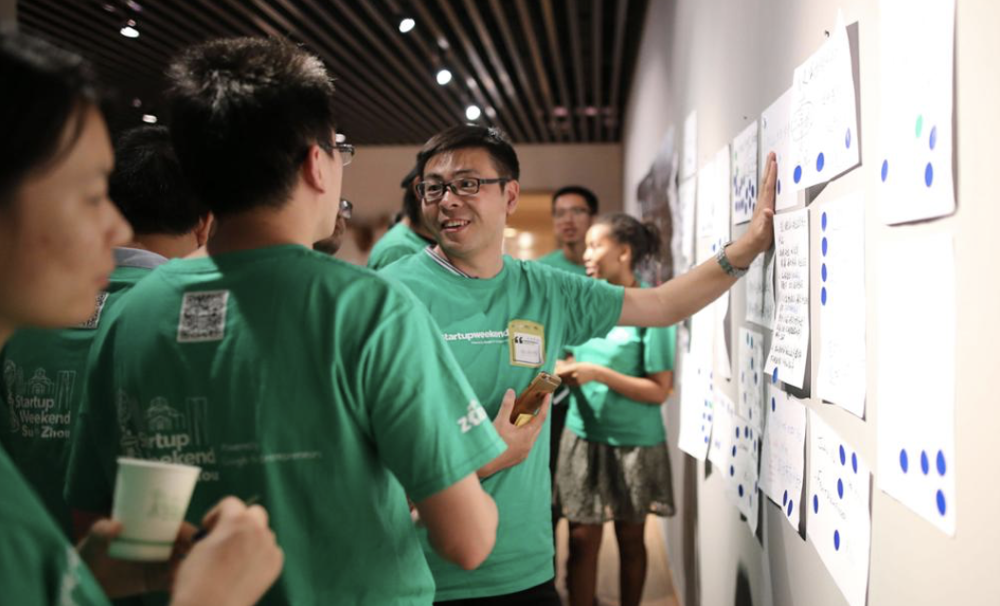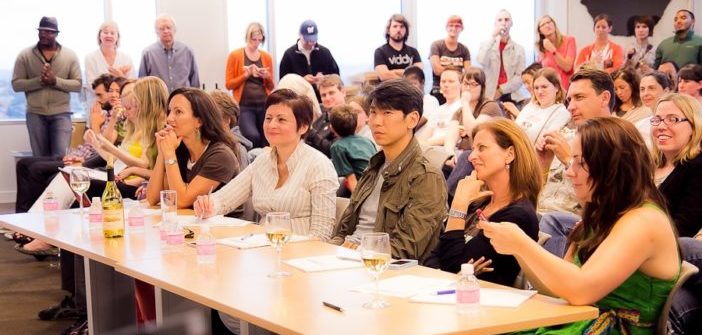Turning your interests into something more worthwhile or profitable is an idea that often appeals to stay-at-home parents or trailing spouses, and this was the inspiration for many of the entrepreneurs whom we’ve featured in our November 2018 issue. Whether you’re a novice in the world of business or an old hand in commerce, tapping into your passions will help you go places.
One of the many brilliant aspects of Beijing is its thriving scene in personal development, providing adult members of the family a chance to explore their interests and skills. Many workshops and seminars give a Chinese or 21st-century take on the different aspects of developing your interests, and may open up ideas for your next venture while in China.
One event next weekend (Nov 16-18, 2018) is focused on making that happen: the Techstars Global Startup Weekend, which brings together budding entrepreneurs and business veterans in one venue. We caught up with one of the event organizers, Andre Queme, to talk about this worldwide network of startup communities.
beijingkids: Just as your strapline says, “It all starts with an idea…” What’s the big idea behind the TechStars Global Startup Weekend?
Queme: Startup Weekend is a widely known global phenomenon, connecting startup communities all across the world. Since 2009 it has reached 158 countries in over 1,606 different cities, with more than 410,000 participants to date. It’s one of the initiatives by Techstars, a worldwide network helping entrepreneurs to succeed. At Startup Weekend, participants will be surrounded by smart, passionate people, with the focus on creating teams to construct great business concepts together. They will pitch ideas, build their first projects with the help of amazing mentors, and pitch to experts in different fields. It’s a great place to connect with future partners, co-founders, learn a lot, and to be inspired to act. Ideas are the start, but being connected to a supportive environment will give people not only the information needed to succeed, but leads, solutions for potential business challenges, friendships, and an extra energy to face one’s entrepreneurial journey. Each location has a different volunteer organizing team, including a wide variety of professions, with experienced or new entrepreneurs.
BJK: Beijing offers a lot of opportunities to enterprising minds, but why do you think it’s easier to come up with a business here despite all the bureaucracy and restrictions, as well as the language barrier?
Queme: Beijing is rich in opportunities, and it’s a perfect place to be involved with the startup scene, regardless of nationality or experience. In our experience with different events happening in many Chinese cities, as well as with my personal experience as a member of the Startup Grind global entrepreneurs community, language is a challenge to many foreign entrepreneurs here mostly because of the diminishing chances of reaching accurate information and not completely allowing a full understanding of cultural contexts, both of which are very relevant for businesses anywhere.
But remember that ideas are independent of linguistic or location-based idiosyncrasies. It’s true that there are challenges in setting up a business in China, but there are also many advantages like the access to highly qualified and multinational talents, state of the art technology, innovation, and a governmental structure that nurtures specific business ecosystems.

BJK: One of the central themes of our current magazine issue is reinventing/branding one’s self – and there’s a lot of expats here who have done such and now have thriving ventures. What’s your thought about reinvention as being part of the “Entrepreneur’s Journey”?
Queme: If an entrepreneur learns the spirit of continuous reinvention, then he/she and the team and their business can profit. Reinvention is a key trait of not only the many successful entrepreneurs, but also artists and leaders who end up being adapted to seasonal difficulties, technological shifts, and competitive pressure while excelling in their respective fields. For that, being in a supportive community and assimilating a constant flow of information is key. And a big part of reinvention is learning from mistakes (yours or others’) and being brave to face the unknown, and they are totally connected to the individual and specific emotional dilemmas.
BJK: What do you think about the “experience of trying” when it comes to starting up and subsequently failing in business?
Queme: Most of the world’s startup culture nowadays originated from Silicon Valley (although it’s changing by the influence of many other hubs, especially China), and one of its main mantras is the concept of “fast failure”: that failure is an opportunity to learn, fine-tune your projects, and receive invaluable knowledge. This can come by your own mistakes or misgivings, or by knowing the ones other people have experienced. We can have access to that vast knowledge by reading books, listening to podcasts, talking to mentors, and participating in events where people open up about their own journeys.
BJK: How should a first-time entrepreneur in China think about the Chinese market?
Queme: An entrepreneur anywhere should be a lifelong learner, and this is perhaps even truer in China. This country has challenged the world by pivoting from its “world’s factory’ image and establishing a very dynamic structure for businesses to prosper, which includes more and more creative and innovative initiatives. So, no matter what his/her nationality is, an entrepreneur should be up to date with two main things, in my opinion: the business structure itself, which includes tax policies, incentives, and challenges permeating different industries; and the reality and habits related to your own chosen industry or niche.
BJK: In Beijing, there’s a bustling market scene full of small-time vendors, as well as young student entrepreneurs in many international schools. Any message that you want to share with them?
Queme: Get involved with what the city offers. Sign up to the Startup Digest, it’s free and will bring you great leads; go to different events in areas you are curious about, get together with friends, and entertain yourself with knowledge more than anything else. Many such events are free and also open to young dreamers.
BJK: What else should participants expect from the TechStars Global Startup Weekend?
Queme: The Startup Weekend will bring together mostly graduate and post-graduate students, but younger students can also join. Tickets are limited and we’ve got promotional prices specific to them because we want to be very inclusive. Besides the opportunity to brainstorm, join teams, and pitch and create projects from scratch, participants in this event will get a chance to join in micro-workshops with themes such as effective networking, elevator pitches, and creating a team atmosphere that supports ideas.

TechStars Global Startup Weekend – Beijing, Nov 16-18
The Startup Weekend begins with pitches and brainstorming, business plan development, and basic prototype creation on Friday night, and culminates in demos and presentations on Sunday. Participants create working startups during the event and are able to collaborate with like-minded individuals outside of their daily networks. All teams hear talks by industry leaders and receive valuable feedback from local entrepreneurs. Students aged 15+ and adults. RMB 288. See event agenda here. AIOSpace机遇空间, D Block, West Road of 798 Art Zone, Jiuxianqiao Road #2, Chaoyang District. (5762 6082, andre.queme@startupdigestmail.com)
Photos: Courtesy of Techstars Global Startup Weekend organizers
